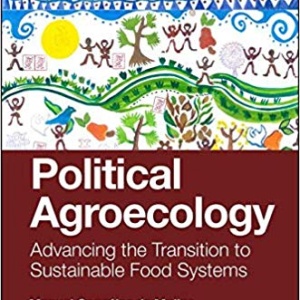
This book presents a complete introduction to the political and institutional aspects of agroecology, covering the whole food system. It sets out a new concept known as political agroecology.
Publisher’s summary
Political Agroecology is the first book to offer a systematic and articulated reflection on Political Agroecology from the Agroecological perspective. It defines the disciplinary field responsible for designing and producing actions, institutions and regulations aimed at achieving agrarian sustainability. In short, it aims to build a political theory that makes the scaling-up of agroecological experiences possible, turning them into the foundation of a new and alternative food regime.
The book proposes theoretical, practical and epistemological foundations of a new theoretical and practical field of work for agroecologists: Political Agroecology. It establishes a framework for a common agroecological strategy, covering the different levels of collective action and the different instruments with which it can be developed. This will be essential reading for agroecologists, environmentalists, farming and food communities, and an ideal textbook for advanced agroecology courses in universities.
Reference
de Molina, M. G., Petersen, P. F., Peña, F. G. and Caporal, F. R. (2019). Political Agroecology: Advancing the Transition to Sustainable Food Systems. CRC Press, Boca Raton.
Read more here. See also the Foodsource building block What is sustainable intensification?







Post a new comment »